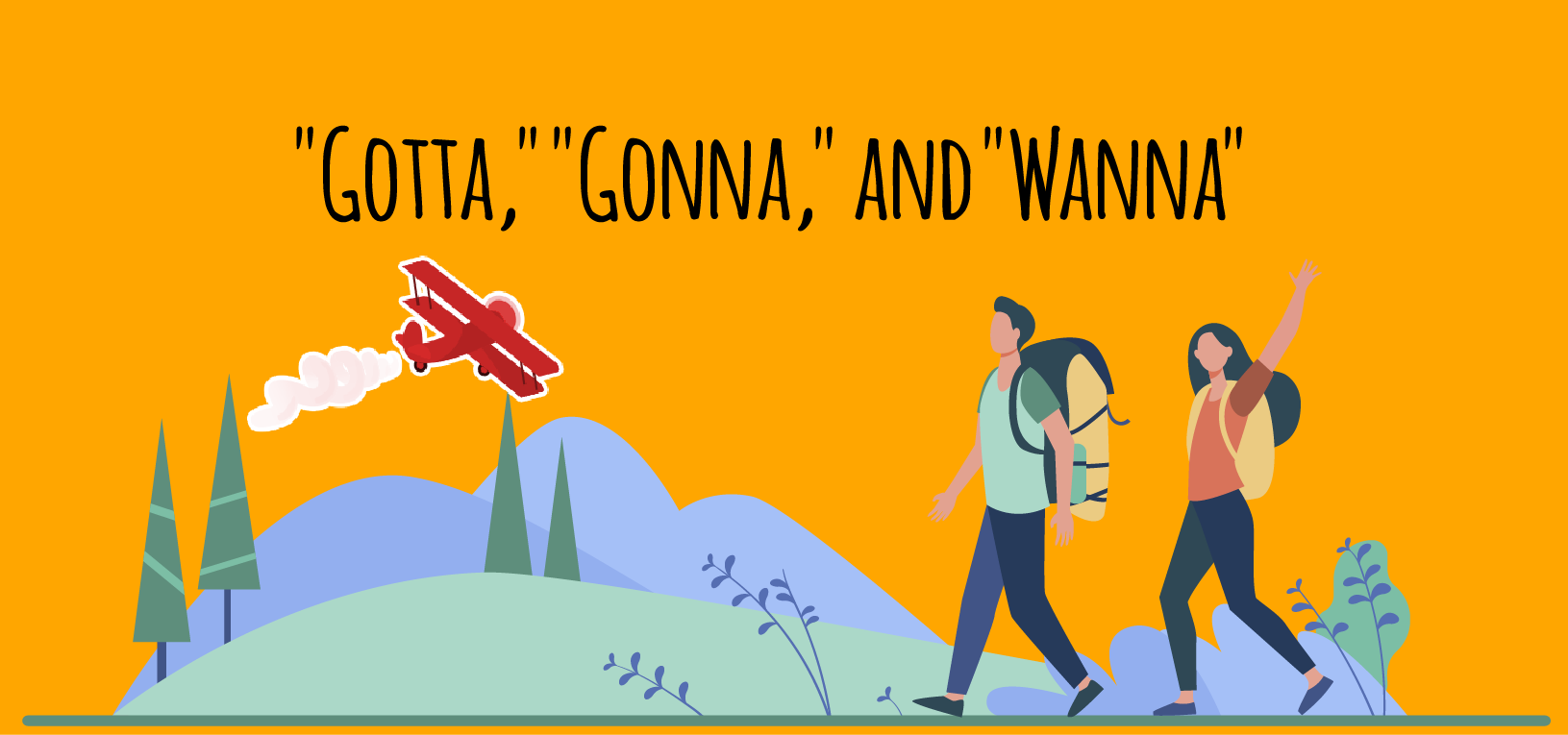“Gotta,” “Gonna,” and “Wanna”

“Gotta,” “Gonna,” and “Wanna”
ÍNDICE DE CONTENIDOS
One of the reasons why it is difficult to understand what you hear in English is that we shorten many words. You probably know how we do formal “contractions” (for example, we reduce “do not” to “don’t”).
But did you know that we also have informal contractions? These “informal contractions” are words that we don’t write a lot, but say a lot of times out loud. Informal contractions are one of the many ways we shorten words in spoken English. They are called “reductions”, or “reduced speech”, and it will be difficult to understand what you hear until you learn it.
Contractions in English: wanna
Let’s see where wanna comes from , how it is built and how it is pronounced . It means the same as want to , that is, want. For example, I want to is I want. Wanna comes precisely from that construction, from want to . In fact, it influences the pronunciation that many of us make of I want to , that instead of pronouncing it as such, we directly pronounce it as if it were written I wanna / auana /.
We defend that contractions in English practically have to create themselves, from a deformation produced by speaking fast . Here’s a trick to make it come out perfectly: nothing more, nothing less than saying quickly I want to go / aewanrugou /. Applying the trick of pronouncing the letter T as a soft R in Spanish.
Then it will come out automatically, because when we say it a bit quickly, / aewanrugou / transforms into / aewannagou / naturally. There you have the famous I wanna ! It simply comes out of the deformation of making the T like a smooth R in Spanish, our famous key letter. Here are some examples:
- Quiero ir – I wanna go.
- Quiero decirte algo – I want to tell you something, que luego se acabaría diciendo, dicho rápido, como si fuese I wanna tell you something.
- ¿Qué quieres decir? – What do you want to say?, que acabaría diciéndose, con velocidad, como si fuese What do you wanna say?
However, in a colloquial way, it is also accepted that wanna is written instead of want to , so depending on the context you can do it in one way or another. It also appears in songs, such as the famous Spice Girls that says If you wanna be my lover (If you want to be my lover). Or on another topic, they say I wanna rock (I want to rock). Another example, more: You want to be there .
Gonna
Gonna comes from the future going to . The same thing happens with it as with other contractions of English, such as wanna . It derives from pronouncing going to when you speak quickly and fluently. And it is formed in the same way. Thus, for example, it happens in I am going to tell you something (te voy a decir algo). Also in I am going to do it (Voy a hacerlo).
As with wanna , it comes from pronouncing the T as a soft R in Spanish. Thus, the last sentence that we have just seen would say I’m gonna tell you . For example, I’m going to buy it , which would be written I’m going to buy it , finally it would end up saying and writing I’m gonna buy it .
Gotta
Of the three contractions in English that we are going to see, gotta is the one that is used the least. However, it is quite common to find it in songs and movies. Where does it come from? Well, from the expression have got to . For example, I have to go is I have got to go , and you could also say and write I gotta go .
When speaking, and quickly, this expression is pronounced so compressed that when saying it the gotta comes out naturally . First I’ve got contracts , and then it joins with to go. The result? I gotta go / aegaragou /. Again, as in the other two contractions in English, it is the result of pronouncing the T as a soft R in Spanish / gára /.
In addition, it is such an informal expression that the I have becomes an I’ve , and directly, with speech, the see is omitted, and everything becomes I gotta go. Let’s see some examples:
- Tenemos un problema – We’ve got a problem, que acabaría siendo we gotta problem/wegarapráblem/.
- Tienes que estar bromeando – You’ve got to be kidding, que se transformaría en You gotta be kidding.
There are quite a few songs in which the gotta appears . For example, a quite famous one from the Black Eyed Peas that says I gotta feeling (I have the feeling) that tonight is gonna be a good night. As you can see, the gonna also appears in it .
As we have discussed, this expression is rarely used in everyday language, although of course, it is necessary to understand it and understand where it comes from and what it means. This way you can easily recognize it.
These are the three contractions in English that we wanted to explain to you. But if you want to go further you can do it first with the free Save Your English course. If later you are up for it and want to go from your level to bilingual, you can do it with the YouTalkTV Plus course.
Do you want to get an official English qualification? Well, here we leave you the number 1 online


